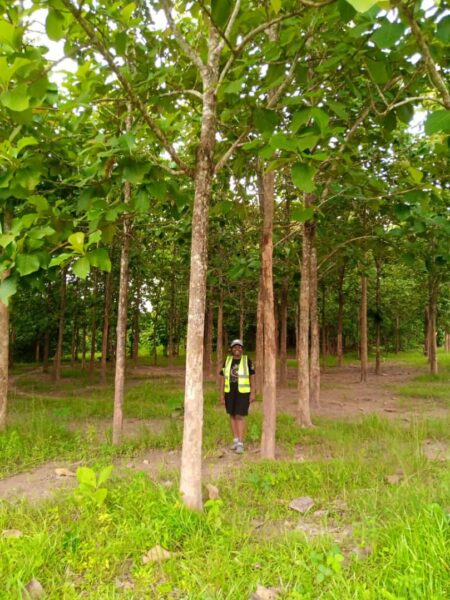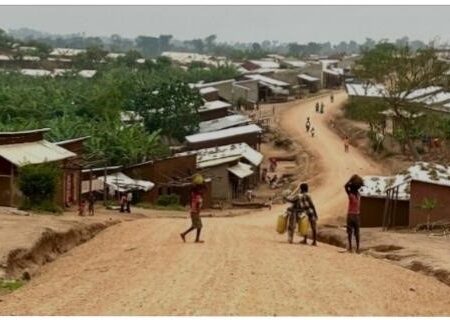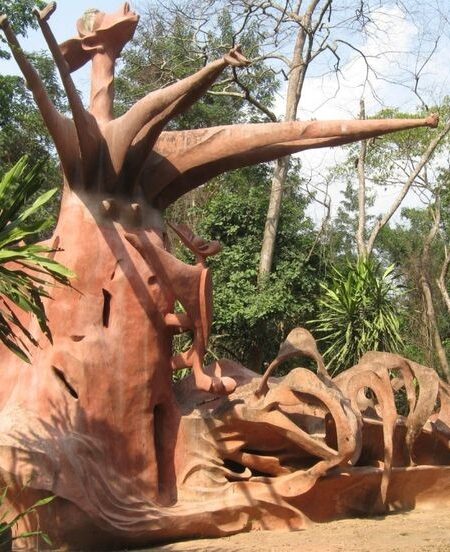INTRODUCTION

In an online article published in the “Embassy of the People’s Republic of China in the Republic of Ghana, January 14th, 2006”, the Chinese government issued the “African Policy Paper” which stressed out China’s African policy with a view to promote the steady growth of China-Africa relations. By virtue of this policy, this furthered intensified China’s influence in the African continent in terms of large-scale investments. According to Jason Mitchell, a Journalist and a senior editor at Investment Monitor, more than 10,000 Chinese companies are operating throughout the African continent and, since 2005, the value of Chinese business there has amounted to more than $2trn, with $300bn in current investments. Africa has also passed Asia as the largest market for China’s overseas construction projects.[1]
Irrespective of above, it’s pertinent to state that, China’s prevalent investments in Africa are directed at only certain countries in Africa based on Chinese interests. Nigeria is one of such African country at the heart of China’s African policy. Here, Nigeria, commonly referred to as “African Giant” has overtime become one of the top five Chinese biggest investment destinations in Africa- after Kenya, The Democratic Republic of Congo, South Africa, and Ethiopia.[2] It should be noted that, Nigeria’s rich mineral resources such as crude oil and other natural resources, serves as veritable pull factors that precipitated Chinese increasingly interests and investments in the country. Nonetheless, Nigeria obtains loans from China to fund projects, and while the terms of these loans are quite lucrative for China, they come at a cost for Nigeria. Hence, it is of this dynamics that has evoke and provoke widespread suspicion of a new form of colonialism as well as praise of a developmental relationship.[3]

In the same vein, this poses different kinds of questions such as: what are African countries bringing to the table? I would argue that Nigeria cannot bring anything to the table as it has nothing to trade, save for the raw crude oil produced for her by Western multinationals; Are Chinese loans beneficial to Africa? Is China really helping Africa, or simply adopted a new model of exploitation and re-colonization of a docile un-competitive continent? To this end, the aims and objectives of this paper is to make a critical evaluative analysis of the Sino-Nigerian relations and to determine if they are qualified to be called neo-colonialism or developmental relationship.
CLARIFICATION OF CONCEPTS (Neo-colonialism/Developmental Relationship)
On the one hand, neo-colonialism as postulated in 1965 by Kwameh Nkruma, the Ghanian politician and revolutionary, represents imperialism in its final and perhaps, its most dangerous stage. That is, in the past it was possible to convert a country upon which a neo-colonial regime had been imposed. However, in contemporary time, the essence of neo-colonialism is that the State which is subject to it is, in theory, independent and has all the outward trappings of international sovereignty. However, in reality, its economic system and thus its political policy is directed from outside.[4] That is, neo-colonialism is the use of political and economic pressures by more developed nations to dominate and control less developed countries, primarily by way of formal legal agreements, economic power and cultural influence.
On the other hand, developmental relationship in the context of international relations, can be referred as a kind of close connection between a somewhat smaller country or a developing country and a bigger or powerful country, in which the powerful country positively or negatively shapes the somewhat smaller country in terms of economic investments, loans, infrastructure etc.
SINO-NIGERIAN DIPLOMATIC RELATIONSHIP
AN OVERVIEW

Source: Fig. (iii) https://nation-media-assets.storage.googleapis.com/wp-content/uploads/2022/01/05162948/Nigeria-China-Relations
Historically, Sino-Nigerian diplomatic relations marked a turning point in 1971, in the context of post-Nigerian Civil War, when Nigeria started to flourish with income from oil production. By implication, Nigeria became an important source of oil and petroleum for China’s rapidly growing economy, while China by default also became an important factor in helping Nigeria achieve a high economic growth by providing extensive economic support through loans, infrastructures, constructions, etc.
The Chinese government has described this relationship as a “win-win” situation which aimed at promoting cooperation among countries of the Southern Hemisphere in a wide range of areas such as trade, investment, technical cooperation, industrialization, energy, food and agriculture, and technology.[5] Thus, the renewed Nigeria relations with China have been a welcome development.
SINO-NIGERIAN BILATERAL TRADE
AN EVALUATION OF SINO-NIGERIAN BILATERAL TRADE
It’s pertinent to state that, this paper does not propose to portray China in a bad light, neither can it deny that Nigeria has not benefited from its relations with China. But the task taken up here is a wakeup call to acknowledge the overwhelmingly unequal trade imbalance between Nigeria and China, which does not foretell good for the transformation of the country’s manufacturing sector.
The Sino-Nigerian trade relations have intensified since 1971, as Nigeria has since then became an important source of oil and petroleum for China’s rapidly growing economy. However, over the years, there has been an overwhelmingly unequal trade imbalance between Nigeria and China. In fact, Nigeria appears to be getting the short end of the stick in its bilateral trade relations with China, as the Asian giant runs rings round Africa.

From the table above, one can notice clearly how the trade imbalance between the two countries has favored China in increasing proportion. Annoyingly, this trade imbalance has persisted to a more despicable level at present.
NIGERIA AS CHINA’S BIGGEST AFRICAN NEO-MARKET
Over the years, Nigeria has become one of China’s Biggest African Neo-Market, as several Chinese investments in form of infrastructures, constructions, loans etc. have been pumped-in into the country. In fact, in nearly every sector of the nation’s economy, China is deliberately working hard to get a big slice of the pie.[6] For instance, they are everywhere. Even as food vendors, secondhand clothes dealers, construction site labourers, etc. It is quite glaring that the Chinese investors are quietly taking over strategic sectors of the Nigerian economy, making massive profits and displacing local businesses.
It’s pertinent to state that, the major Chinese investments in Nigeria comes in form of constructions and loans, and they can be considered as the “subtle strategy of China’s neo-colonialist tool in Nigeria”.[7]
On the one hand, is “construction”. For instance, the 156-kilometer Lagos-Ibadan railway costs $1.5 billion and runs from Lagos to Ibadan, the second largest city in the country’s southwest, and, subsequently, with additional funding, on to the northern cities of Nigeria. In fact, it is funded by a $1.3 billion loan from the Export-Import Bank of China and about $182 million from the Nigerian government. The Lagos-Ibadan line is a critical section of the broader $11.1 billion 2,733 kilometer Lagos-Kano standard-gauge north-south railway being constructed by Chinese engineering giant the China Civil Engineering Construction Corporation (CCECC).[8]

On the other hand, is “loans”. It’s pertinent to state that Chinese loans to Nigeria have been subjected to skepticism by many experts. For instance, China’s debt strategy has also been described as “a new form of economic colonialism”,[9] which is a reminiscent of the quote by John Adams: “There are two ways to conquer and enslave a nation: One is by the sword and the other is by debt.”[10]

Likewise, several observers have expressed concerns over what they describe as “Chinese debt trap diplomacy,”[11] which essentially refers to the borrowing nation having to forfeit its stakes in the infrastructural developments tied to its loans.
As of December 2022, Nigeria’s debt owe to China amounts to $4.29 billion, and the question remains as to whether Nigeria can repay this debt and avoid falling to what has been termed, “the Chinese debt teap”. In fact, I will bring it to your hearing that, a toxic loan clause was signed between China and Uganda in 2015, which would see a possible takeover of Uganda’s only international airport and other key assets if she fails to repay her $207 million loan obtained in November 17, 2015 from the Export-Import Bank of China. I therefore ask myself, if that won’t also be the case for Nigeria, and if this isn’t a subtle strategy of China’s neo-colonialist tool in the country.
CONCLUSION AND RECOMMENDATION
Despite the fact that, Sino-Nigerian relations is viewed as a “win-win situation” for both parties. It is however, evident that Nigeria has not fully benefitted from her economic relations with China, as the Chinese way of handling the situations of economic cooperation looks like Nigeria is being colonized for the second time. In light of this, I will proffer the following recommendations: Nigeria should tread carefully when it comes to loans and not count on China alone; the country should also turn to other entities and involve the private sector in their development plans in order to strike a balance; Nigeria should utilize China’s hunger for oil to extricate concessions in areas imperative to Nigeria’s advantage; and finally, there should be a synergy between the Nigerian government and Sino-Nigerian stakeholders, to ensure coherence in strategizing policies and efforts aimed at bridging the trade imbalance between the two countries in favor of Nigeria.
BIBLIOGRAPHY
Online Journals and Books
Dorothy-Grace Gueriero, Firoze Manji. China’s New Role in Africa and the South: A Search for a New Perspective. Cape Town, Nairobi, Oxford, 2008.
Shittu Adewole Raji, Adenike Ogunrinu. Chinese Investment and its Implications for Nigeria’s Economic Security. Bazilian Journal of African Studies| Porto Alegre| v.3, n. 6, pg. 123-142 Jul/Dec. 2018.
Xu Weizhong. Sino-African Relations: New Transformations and Challenges, in China’s New Role in Africa and the South, pg. 67, 2008.
Tamunopubo Big-Alabo. An Analysis of China-Nigeria Economic Cooperation. Researchgate.net. vol. 22-issue-3-July-September-2019.
Jason Mitchell. Afica’s Reliance on China is only likely to get worse. 2023.
Mercator Institute for China Studies. Nigeria sees China as a steady Partner and its Largest Lender. Aug. 18, 2022.
Xu Weizhong. Sino African relations: New Transformations and Challenges, in China’s New Role in Africa and the South. Pg. 67, 2008.
Kwameh Nkruma. Neo-Colonialism: The Last Stage of imperialism, 1965.
Agbu, O. Promoting Nigeria-China Relations. Nigerian Forum, 14(5-6), 12 – 16. March, 23, 1994.
Online Punch Newspaper. How China is re-colonizing Nigeria (2). March 2nd, 2022.
Odinaka Amudu. China: Nigeria’s Industrial Partner or Neo-colonialist? Businessday Online Newspaper. Sept. 25, 2017.
Paul Adepoju. Nigeria’s ambitious Chinese-built rail project is keen to avoid a familiar problem. QUARTZ. Jan. 19, 2021
Abiola Odutola, “Nigeria Is Falling into China’s Debt Trap,” Nairametrics, May 21, 2020, https://nairametrics.com/2020/05/21/china-nigeria-loan-nigeria-is-falling-into-chinas-debt-trap.
“John Adams: “The Two Ways to Conquer and enslave a nation,” America’s Party, April 3, 2012, https://www.selfgovernment.us/news/john adams-the-two-ways-to-conquer-and-enslave-a-nation.
Abiola Odutola, “Nigeria Is Falling into China’s Debt Trap,” Nairametrics, May 21, 2020, https://nairametrics.com/2020/05/21/china-nigeria-loan-nigeria-is-falling-into-chinas-debt-trap/
References
[1) Jason Mitchell. Afica’s Reliance on China is only likely to get worse. 2023.
[2] Mercator Institute for China Studies. Nigeria sees China as a steady Partner and its Largest Lender. Aug. 18, 2022.
[3] Xu Weizhong. Sino African relations: New Transformations and Challenges, in China’s New Role in Africa and the South. Pg. 67, 2008.
[4] Kwameh Nkruma. Neo-Colonialism: The Last Stage of imperialism, 1965.
[5] Agbu, O. Promoting Nigeria-China Relations. Nigerian Forum, 14(5-6), 12 – 16. March, 23, 1994.
[6] Online Punch Newspaper. How China is re-colonizing Nigeria (2). March 2nd, 2022.
[7] Odinaka Amudu. China: Nigeria’s Industrial Partner or Neo-colonialist? Businessday Online Newspaper. Sept. 25, 2017.
[8] Paul Adepoju. Nigeria’s ambitious Chinese-built rail project is keen to avoid a familiar problem. QUARTZ. Jan. 19, 2021
[9] Abiola Odutola, “Nigeria Is Falling into China’s Debt Trap,” Nairametrics, May 21, 2020, https://nairametrics.com/2020/05/21/china-nigeria-loan-nigeria-is-falling-into-chinas-debt-trap.
[10] “John Adams: “The Two Ways to Conquer and enslave a nation,” America’s Party, April 3, 2012, https://www.selfgovernment.us/news/john adams-the-two-ways-to-conquer-and-enslave-a-nation.
[11] Abiola Odutola, “Nigeria Is Falling into China’s Debt Trap,” Nairametrics, May 21, 2020, https://nairametrics.com/2020/05/21/china-nigeria-loan-nigeria-is-falling-into-chinas-debt-trap/











